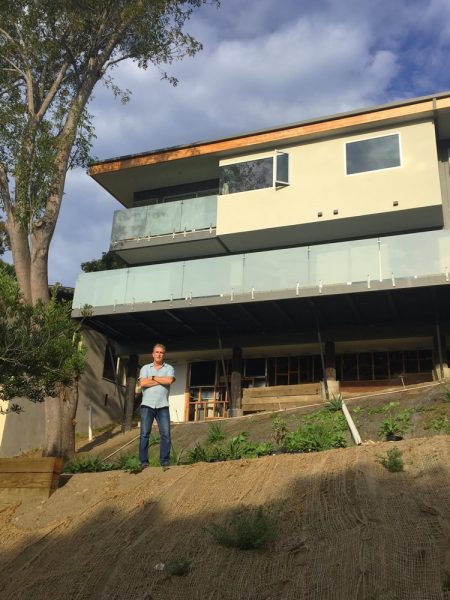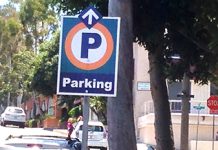
By Cassandra Reinhart, Special to the Independent
A state lawmaker from Santa Monica has told the city of Laguna Beach it is misinterpreting a new state law he authored, meant to encourage accessory dwelling units or “granny flats,” on residential properties in California.
In a letter dated Sept. 13, 50th District State Assemblyman Richard Bloom, chair of the Budget Subcommittee on Resources and Transportation, told City Manager John Pietig that Laguna Beach is wrong in its refusal to enforce the state’s new law. The city is instead citing that revisions to development ordinances, such as the ADU ordinance, fall under the jurisdiction the California Coastal Commission (CCC), not other state agencies.
“Both the California Department of Housing and Community Development (HCD) who oversees state housing laws and the CCC believe that the city is incorrectly interpreting the new state law,” Bloom said in his letter to the city. “The city of Laguna Beach is the only city to cite this reason for not approving any ADU permit applications.”
Bloom’s legislation, which went into effect Jan. 1, is meant to address what state lawmakers have deemed one of the biggest crises facing California, the lack of affordable housing. The law now ensures ADUs do not incur additional utility connection fees, that local governments approve an ADU application if the unit is contained within a residence and setbacks, and waives parking requirements if the unit is within a half mile of public transit. With Laguna Beach’s trolley and bus service, most homes in the city would qualify.
The state encouraged cities to amend their existing ADU ordinances prior to Jan. 1 or be considered null and void. Laguna Beach has yet to amend its ordinance, maintaining that it is valid because it falls under the jurisdiction of the California Coastal Commission. Because Laguna Beach has a Local Coastal Program (a planning document that lays out ground rules for development) it says its existing ADU ordinance must be sanctioned by the Coastal Commission. Thus any update to an ordinance also requires a revision to the Local Coastal Program, which needs Coastal Commission approval to take effect.
“While development rules can be complicated particularly for communities within the Coastal Zone where state housing laws mesh with state Coastal Commission laws, the city has erroneously interpreted the intent of the new law,” Bloom said. “Other jurisdictions are implementing the new state law and processing ADU permit applications.”
In his letter, Bloom states that the CCC itself has informed him they disagree with Laguna Beach’s interpretation that the new law is not enforceable because it is part of the city’s Local Coastal Program, and that the Coastal Commission said this should not be a delay for the city in issuing permits for ADUs. Bloom said the Coastal Commission intends to clarify their position on the interpretation of the state law in the coming weeks.
Pietig did not have any comment on Bloom’s letter. “We just received the letter and need to review it,” he said.
Laguna Beach resident Court Shannon initially contacted Assemblyman Bloom after the city repeatedly denied his ADU application. Shannon has been trying to get an ADU permit approved for months to build a 740-sq. foot granny flat in the backyard of his home at 1395 Temple Hills Drive. He says parking requirements, among other things, are keeping him stuck in limbo between what would be approved under the new state ADU law and the particulars of the city’s ordinance. Shannon says though his proposed ADU is within a half mile of a bus stop, making it compliant under the state’s requirement for access to public transportation, the city has resisted approval as they refer back to their ordinance which requires private parking.
“The city is trying to find dubious ways to continue to obstruct processing and approving our ADU’s and others,” Shannon said. “The old ordinance does not comply with state law and applications should be processed under state law.”
“This ordinance is critical as your community joins the collective efforts across this state to address California’s affordable housing crisis that is displacing thousands of residents across this state- particularly seniors and working families on fixed incomes,” Bloom said in his letter.
Al Trevino and his wife Delores purchased their home in Bluebird Canyon in 1959, and designed it with the knowledge that the parcel was zoned for a potential granny flat to be used in retirement. But because of parking requirements, Trevino can’t get a permit until the city enforces the new state law, crushing what was going to be his dream for retirement.
“The issue of caring for senior citizens has been known for decades yet Laguna Beach changed what was a workable solution to one that is uneconomic, virtually impossible to construct and detrimental to owners of modest homes,” Trevino said. “What I would like to happen is to have the city give me back my dream of a place to live out my life in Laguna.”
Trevino, and a group supporting the state’s ADU law, are planning to attend a Planning Commission hearing over the city’s ADU ordinance Wednesday, Sept. 20. They intend to urge the Planning Commission to start approving ADU’s under the state’s new law. In his letter, Bloom urged the city to do so as well.
“Every day of delay is a day someone is potentially displaced from your community so I hope this letter provides you with the necessary clarification for the city to take action immediately,” Bloom said.





[…] Grandma Moses. She wasn’t my real grandma, but I love her artwork. When I read the Indy’s, “Lawmaker Presses Laguna to Move Ahead With Granny Flats,” I wondered if Grandma Moses ever lived on such a premise. So, I called around the New England […]
Since when is a granny flat obligated for minimum parking requirements? Silly. Laguna needs Parking Reform.